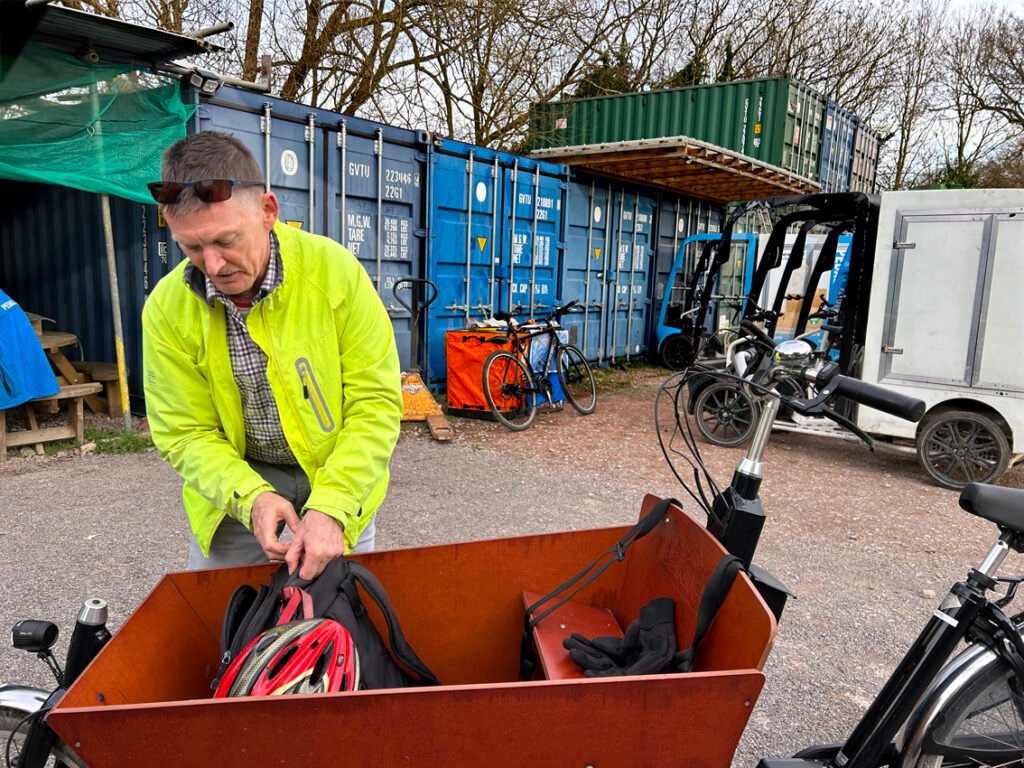Going car free

By Hirra Khan Adeogun
Hirra is co-director of climate charity Possible
Politicians in the UK have spent decades putting policies in place which make driving easier and cheaper. We have normalised mass private-car ownership and all the problems it creates, telling ourselves that this is the only way of doing things. But there is another way. We need to create cities with fewer cars on the road, moving away from all the dangers cars pose to our health, our lives and the climate.
Climate science makes it clear that we need to reduce our dependence on cars. The climate charity I work for, Possible, has been campaigning on this for years, encouraging walking, wheeling and cycling as well as lobbying politicians to invest in public transport and progressive policies that will inspire people to stop driving.
The Going Car Free challenge
A key component of our campaigning was to create the Going Car Free challenge. We recruited 12 willing participants in Oxford to give up their cars for 3 weeks. They had to seek alternative methods of travel, and report their experiences back to us. Many people are locked into car ownership because they see no alternatives. The information we gathered would be used to support our goal of breaking this cycle.
Going car free, for even a short period of time, isn’t easy. This is especially so if you are in the habit of driving everywhere, if you can’t rely on other means or if you have mobility issues. But, for many of us, it’s not impossible.
Who took part?
The participants we recruited were people from all walks of life, with one thing in common: they were regular drivers out of what they felt was necessity, or from habit. Possible’s Going Car Free challenge gave many of them the boost they needed to shake up their car-based lifestyle and stop relying so heavily on their cars.
During the 3 weeks of the challenge, there was an astonishing 50% reduction in carbon emissions among participants, day-to-day on average. Most participants also reported improved wellbeing from going car free. The benefits included improved mental health, a stronger sense of community, less social isolation, cleaner air. Some even saved money.
How did they travel?
Many of the participants chose to either cycle or take the bus, and 10 out of the 12 participants are planning to reduce their car use permanently following the challenge. One person gave up their car entirely.
One participant hired a bike so they could try it out without spending the money upfront, feeling that cycling would be the perfect way to get some extra exercise while not having to rely on local buses and getting stuck in traffic.
They told us: “I absolutely loved cycling around Oxford. I didn’t think I’d be fit enough to get everywhere I wanted to, but I really surprised myself. I could feel myself getting stronger as the challenge went on, and I felt better mentally as well as physically. It was such a huge morale boost.” After the challenge ended, this person bought a bike.

One participant hired a bike so they could try it out without spending the money upfront
The benefits of going car free
It might sound scary to give up your car. But it brings so many benefits to your own life, as well as cleaner air and calmer roads. Rather than spending hours stuck alone in traffic, we could spend more time getting exercise, talking to people or at home with our loved ones.
Millions of us could feel these benefits if we were supported in doing so. Improved cycling infrastructure and investing in local transport services are two examples of the support we need. We know we need to cut our car miles. We know there’s too much traffic in Oxford. So let’s get on with helping people make this positive choice for themselves, our communities, our cities and our climate.
